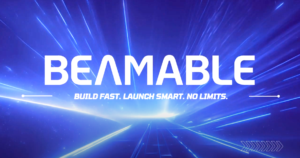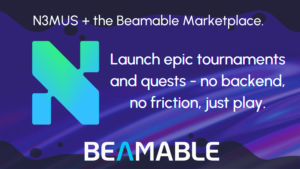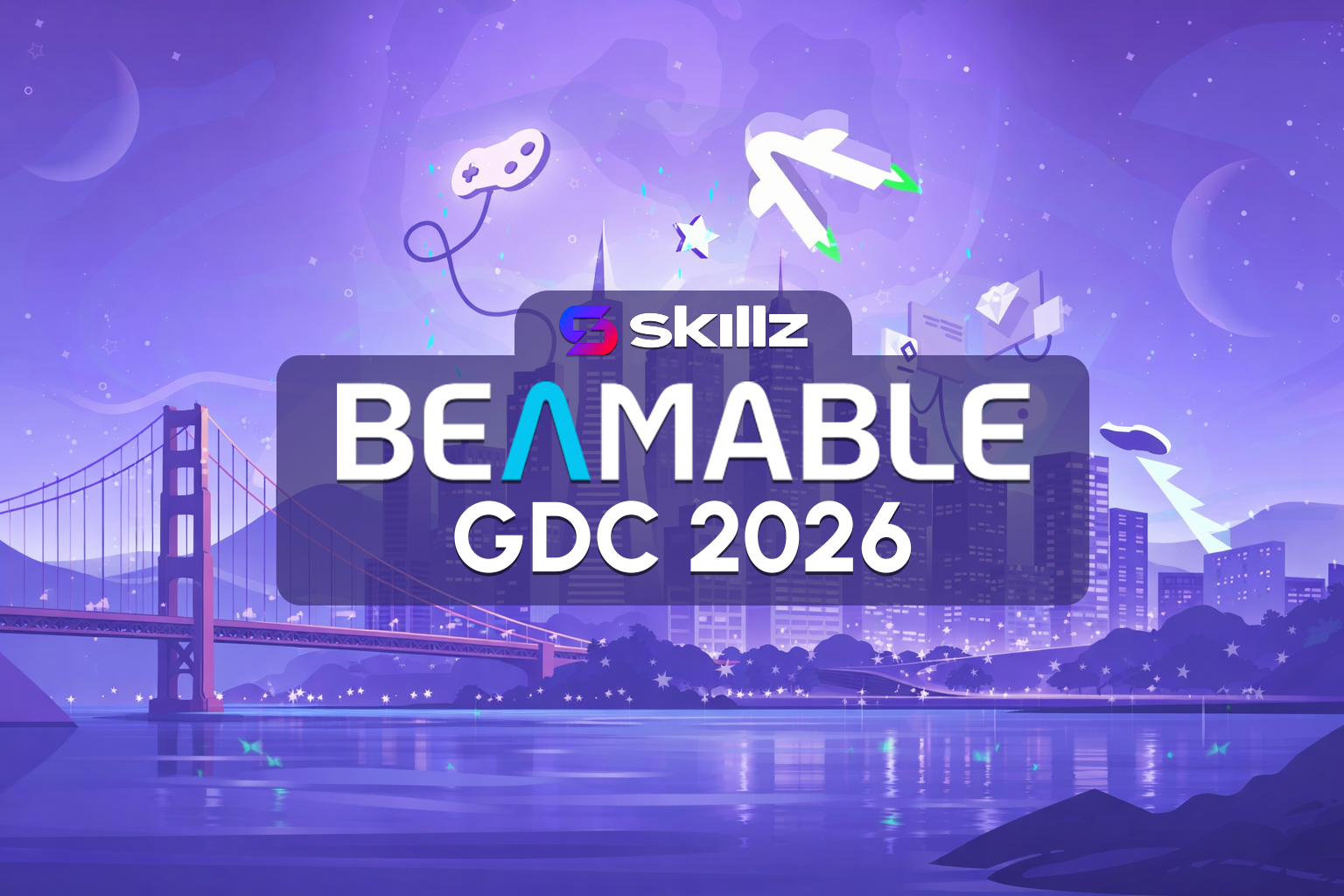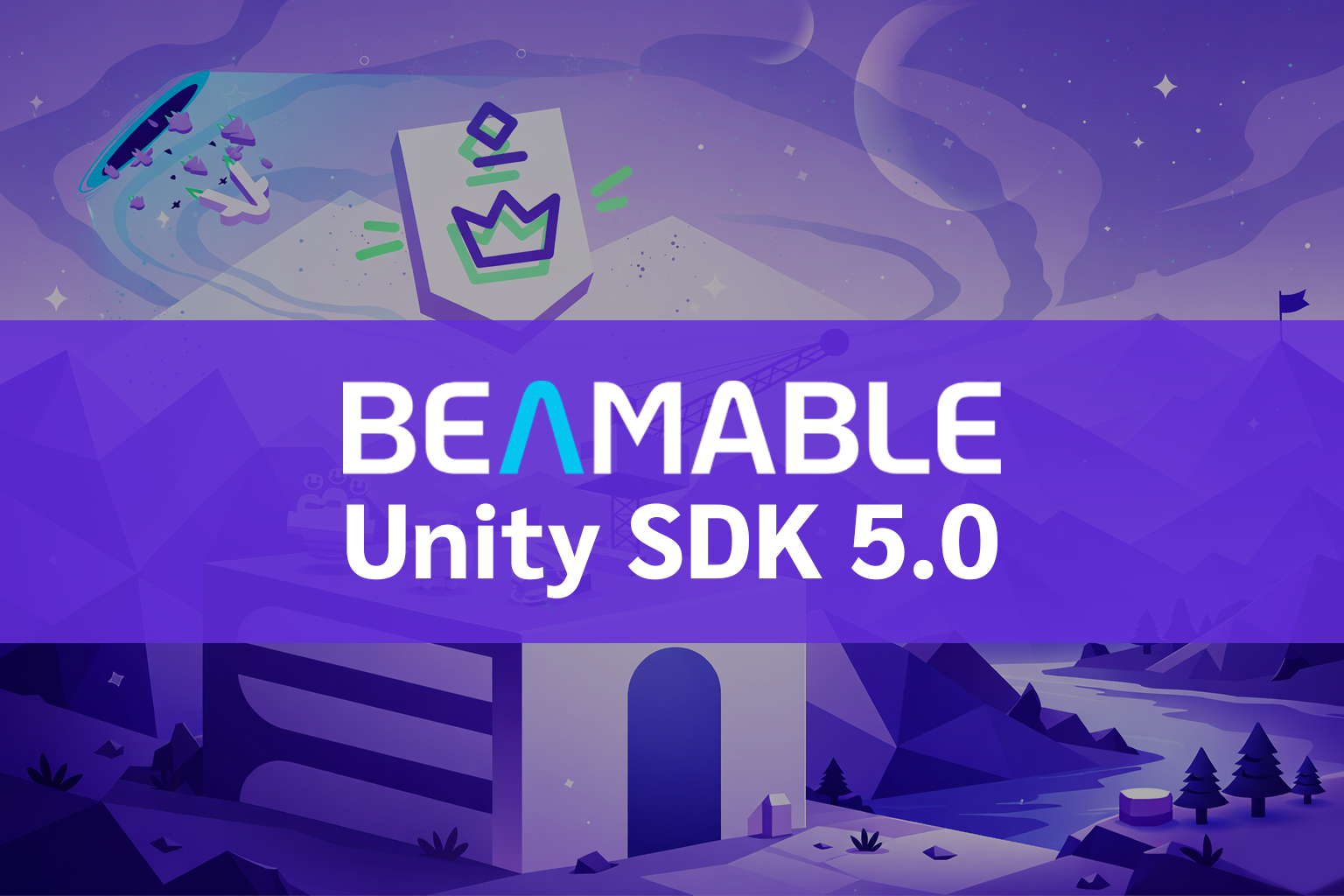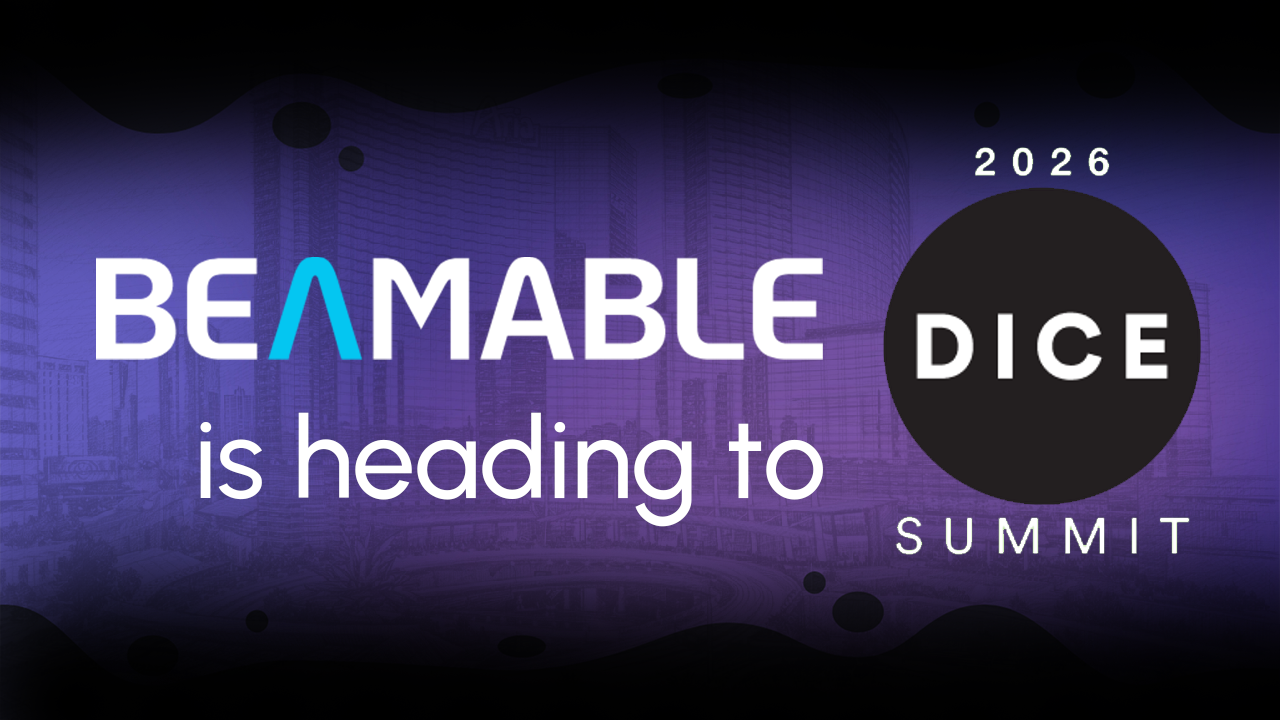Beamable GDC 2024 Announcements

Beamable GDC 2024 Announcements
GDC is a time for game developers to come together, celebrate the good moments, mourn the bad ones, and look forward to exciting new technologies in the year to come. The folks at Beamable are eager to share what we’ve been working on. GDC is the perfect time to pause, breathe, and showcase some of the incredible projects we’re getting ready to release into the hands of game developers. Beamable is becoming the open platform for game server development.
We are thrilled to announce:
- Beamable is open to new engines.
- Beamable is open to third-party developers.
- Beamable is open to scrutiny.
Watch the Video Announcement!
Briefly and for the uninitiated, Beamable is a game tools company specializing in reusable and extendable server technologies. Beamable was founded by developers who built, deployed, and managed Live Ops games with over 20 million players. Now, that same technology is empowering hundreds of studios across the globe to build their own successful Live Ops games.
One of the best things that elevates Beamable above the rest is customizable Microservices. We can and do provide a laundry list of ready-made features like frictionless auth, accounts, leaderboards, inventory, events, analytics, social, and commerce features. Those off-the-shelf features work for some games, but inevitably, there are game studios with unique ideas and innovative visions for new ways to adopt Live Ops. No pre-made solution exists that will fit every creative mind’s needs. Beamable allows game developers to create their own customized Microservices that seamlessly plug into the great Beamable architecture and ecosystem, but also unlock developers to do what they do best: develop.
Bring your Game Engine
When Beamable started, we only offered a C# Unity SDK. Throughout 2023, we’ve been working on building a C++ and Blueprint Unreal SDK. By the way, the Unreal SDK is available in Beta, and developers like Playful Studios are building games with it right now. Our official Online Subsystem plugin for Unreal is in early development as well. The Unreal SDK was our opportunity to go from one SDK to many SDKs and from one language (C#) to many languages (C# and C++). Now, the architectural patterns that facilitated our “one to many” journey also make it easy to bring Beamable to new C# based engines like Godot or Monogame, as well as non-C# based engines such as Bevy (Rust), Phaser (Javascript), or custom engines. You should take a look at our Bevy sample project, which integrates a custom Microservice with OpenAI.
Beamable is becoming engine agnostic thanks to our reliance on the Open API 3.0 specification. When you build a Microservice with Beamable, it automatically builds an Open API document. That document can be given to off-the-shelf open-source tooling that generates SDK code in whatever language you need, such as C#, Rust, or Javascript. Beamable’s own services also publish Open API documents, so you can generate bindings to the core Beamable capabilities like Auth, Accounts, and Content. We actually use the Open API documents generated from our own servers to generate the core C# SDK code we ship inside Unity and the core C++ code we ship with the Unreal SDK.
We also built a Command Line Tool (CLI) that makes it easy for developers to manage their Microservices, Content, and other Beamable systems. Within Beamable, we have been refactoring most of the core functionality from the Unity Editor SDK into the CLI. Then, the Unity Editor SDK communicates with the CLI behind the scenes. Our Unreal SDK can also utilize the CLI tooling, which means we can move twice as fast, delivering new Beamable tooling across our engine ecosystem. Our goal is to build engine integrations that feel native to each engine environment, but under the hood, are simple wrappers over our CLI. We can focus more on delivering an idiomatic workflow, and less on boilerplate.
Bring your Plugins
Beamable is becoming much more than an SDK, an API, and an administration website. The ability to write custom Microservices and have them automatically hosted on the cloud means Beamable is the perfect environment to foster interoperability and nurture an ecosystem of third-party plugins and tools for game development. The Beamable Marketplace is a collection of certified modules that extend Beamable and connect it to third-party systems.
Some marketplace integrations like our Scenario AI module work by having a Microservice act as the secure middle-man between players of your game and third parties. Other integrations use Microservices to take ownership of specific game tasks, like Inventory management. Beamable is offering a workshop at GDC ‘24 to teach developers how to integrate blockchain technology like Mysten Labs’ SUI as the source of truth for player Inventory. Simplifying for the sake of brevity, Beamable’s own Inventory service will grant custody of the inventory logic to a custom Microservice, which can proxy the custody to a variety of blockchains, like Polygon, Solana, SUI, and more. Studios like Great Big Beautiful Tomorrow are using this technology right now to deliver fun games that rely on blockchain technology behind the scenes.
Beamable offers more types of this service level federation, including authentication and matchmaking capabilities. For example, you can pull in a ready-made Microservice that connects Beamable’s own Matchmaking functionality with Hathora’s powerful server orchestration API. When a Beamable match is about to begin, the Microservice spins up a dedicated game server using Hathora and then connects all the players to the fresh server.
The marketplace is a great starting point to see what is possible with Beamable Microservices, but you can already build cool stuff on your own. Companies like Go4Gold are integrating custom authentication solutions into their games by using Beamable’s authentication federation. Beamable offers out-of-the-box authentication with Google, Apple, custom email, etc, but we don’t have SMS authentication by default. Go4Gold used the Twilio API and Beamable Microservices to securely bring SMS based authentication to their project.
Bring your Scrutiny
We recently released a public API status page so you can keep track of our uptime and stability. Beamable receives hundreds of millions of API requests per day. Those requests come from over a million monthly active users across over 100 games built on Beamable. We know our API is critical infrastructure for our developer community, and we are dedicated to being accountable for our uptime and stability.
The Beamable client-side SDK is now Source Available on GitHub with a non-permissive license. That includes the Unity SDK, the Unreal SDK, the Microservices code, and our CLI tool. We aim to meet our developer community wherever they work and make it easier for developers to interact with and learn from our SDK code. We’ve opened up Github Issues and Github Discussions on the main C# repository that holds the CLI, and we look forward to engaging with the community. Additionally, GitHub will serve as a new way to get the Unity SDK, including specialized preview builds, into Unity using Unity Package Manager.
If you’ve read this far, I applaud your sense of focus in today’s fast-paced world. As a prize, you can try out our CLI here, get it running in Bevy, or just skip that part and play the sample game.
Have a good GDC, folks!
